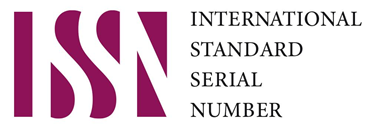THE PROSPECT OF PALEKBANG BRIDGE: A DRIVE FOR INCLUSIVE AND EQUITABLE GROWTH IN KELANTAN
DOI:
https://doi.org/10.46754/jml.2022.08.006Keywords:
ECERDC, Palekbang Bridge, Congestion, City growth, Connectivity, TradeAbstract
The East Coast Economic Region (ECER) was established in 2007 with the announcement of the ECER Master Plan by the Malaysian Government. Meanwhile, the ECER Development Council (ECERDC) is driving development in the ECER by launching several high-impact projects and programmes to promote socioeconomic transformation by increasing private investment in the region. The ultimate goal is to close the socioeconomic gap between East and West Coasts by empowering local communities to benefit from job and entrepreneurial opportunities. One of the ECER projects is the construction of the Palekbang Bridge in Kelantan, which will connect Kota Bharu and Palekbang, Tumpat. The bridge construction is critical in light of two factors: Congestion at the Sultan Yahya Petra Bridge and limited growth in the Kota Bharu city centre. This paper discusses the role of ECERDC as the primary monitoring body for the project, as well as the potential of the Palekbang Bridge to provide physical, economic, and social benefits to citizens. It is hoped that the bridge construction will address congestion and limited growth, stimulate trade activities, improve connectivity, and accessibility. As a result, economic growth across all economic sectors will be boosted in the coming years.
References
ECERDC. (n.d.). “The Detailed Design and Supervision Works for Palekbang Bridge, Kota Bharu, Kelantan Darul Naim for The East Coast Economic Region Development Council (ECERDC)”.
ECERDC. (2008). 2008 East Coast Economic Region Development Council Annual Report.
ECERDC. (2009). 2009 East Coast Economic Region Development Council Annual Report.
ECERDC. (2010). 2010 East Coast Economic Region Development Council Annual Report.
ECERDC. (2011). 2011 East Coast Economic Region Development Council Annual Report.
ECERDC. (2012). 2012 East Coast Economic Region Development Council Annual Report.
ECERDC. (2013). 2013 East Coast Economic Region Development Council Annual Report.
ECERDC. (2014). 2014 East Coast Economic Region Development Council Annual Report.
ECERDC. (2015). 2015 East Coast Economic Region Development Council Annual Report.
ECERDC. (2016). 2016 East Coast Economic Region Development Council Annual Report.
ECERDC. (2017). 2017 East Coast Economic Region Development Council Annual Report.
ECERDC. (2018). 2018 East Coast Economic Region Development Council Annual Report.
ECERDC. (2019a). 2019 East Coast Economic Region Development Council Annual Report.
ECERDC. (2019b). ECER Master Plan 2.0: The Next Leap 2018-2025. 1–188.
ECERDC. (2021). “Projek Cadangan Pembinaan Jambatan Palekbang dan Jalan Penghubung antara Jajahan Tumpat dan Jajahan Kota Bharu, Kelantan”.
Husin, M. A., & Ibrahim, M. D. (2014). The role of accounting services and impact on Small Medium Enterprises (SMEs) performance in manufacturing sector from East Coast Region of Malaysia: A conceptual paper. Procedia - Social and Behavioral Sciences, 115(Iicies 2013). 54-67. DOI: https://doi.org/10.1016/j.sbspro.2014.02.415
Jamal, K., Kamarulzaman, N. H., Abdullah, A. M., Ismail, M. M., & Hashim, M. (2014). Adoption of Fragrant Rice Farming: The case of paddy farmers in the East Coast Malaysia. UMK Procedia, 1(October 2013). 8-17. DOI: https://doi.org/10.1016/j.umkpro.2014.07.002
Lim, G., Li, C., & Adi Syailendra, E. (2021). Why is it so hard to push Chinese railway projects in Southeast Asia? The role of domestic politics in Malaysia and Indonesia. World Development, 138(November 2016), 105272. DOI: https://doi.org/10.1016/j.worlddev.2020.105272
Mohd, F. A., Abdul Maulud, K. N., Karim, O. A., Begum, R. A., Awang, N. A., Ahmad, A., Wan Mohamed Azhary, W. A. H., Kamarudin, M. K. A., Jaafar, M., & Wan Mohtar, W. H. M. (2019). Comprehensive coastal vulnerability assessment and adaptation for Cherating-Pekan coast, Pahang, Malaysia. Ocean and Coastal Management, 182(August). DOI: https://doi.org/10.1016/j.ocecoaman.2019.104948
Rahim, M. A. C. A., Ali, M. M., Yaacob, W. Z. W., Yusoff, A. H., Liu, S., Shi, X., & Mohamed, C. A. R. (2021). Source and sinks of 210Pb in oceanic margins of east coast Peninsular Malaysia. Journal of Asian Earth Sciences, 215(May), 104812. DOI: https://doi.org/10.1016/j.jseaes.2021.104812
Sany, S. B. T., Tajfard, M., Rezayi, M., Rahman, M. A., & Hashim, R. (2018). The west coast of peninsular Malaysia. In World Seas: An Environmental Evaluation Volume II: The Indian Ocean to the Pacific. (pp. 437-458, 2nd ed.). DOI: https://doi.org/10.1016/B978-0-08-100853-9.00050-6
Downloads
Published
How to Cite
Issue
Section
License
Copyright (c) 2022 PENERBIT UMT

This work is licensed under a Creative Commons Attribution 4.0 International License.
















